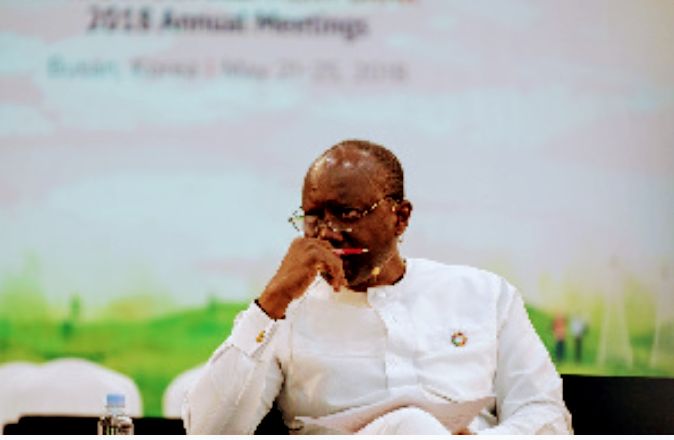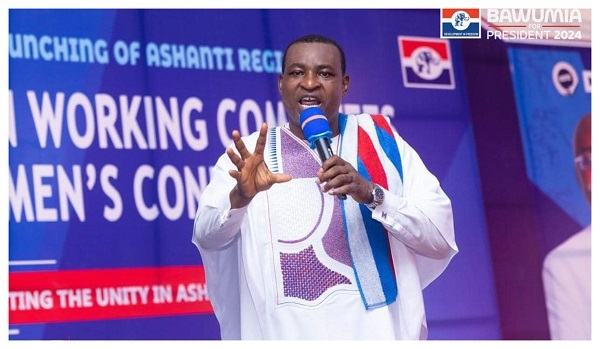The Ghana Card: Paving the Way for Economic Transformation

In an era where digitalization and formalization are driving global economies forward, Ghana stands at the cusp of a transformative journey, spearheaded by a simple yet revolutionary tool: the Ghana Card. This unique identity card is not just a piece of plastic but a powerful instrument designed to formalize the Ghanaian economy and ensure its holistic transformation.
The Ghana Card: A Cornerstone of Economic Formalization
At the heart of Ghana’s push towards economic formalization is the Ghana Card, issued by the National Identification Authority (NIA). This card encapsulates biometric data including fingerprints, iris scans, and photographs, providing each Ghanaian with a unique identity. The implications of this for economic formalization are profound.
1. Financial Inclusion and Access to Services
The Ghana Card plays a pivotal role in enhancing financial inclusion. With a unique identity, Ghanaians can easily open bank accounts, access credit, and use financial services that were previously out of reach for many. This inclusion not only empowers individuals but also integrates them into the formal economy, fostering a culture of savings and investment.
2. Streamlining Taxation and Revenue Collection
Effective taxation is the backbone of any formal economy. The Ghana Card facilitates accurate identification and tracking of taxpayers, significantly improving tax compliance. By linking financial transactions and income to individual identities, it reduces tax evasion and broadens the tax base. This increased revenue can be channeled into critical public services and infrastructure, driving national development.
3. Enhancing Social Services and Welfare Programs
The Ghana Card ensures that social services and welfare benefits reach the intended recipients. By eliminating fraud and duplication, it guarantees that resources are allocated efficiently and fairly. This transparency enhances trust in government programs and ensures that the vulnerable populations receive the support they need.
4. Simplifying Business Registration and Operations
For entrepreneurs and businesses, the Ghana Card simplifies the registration and licensing processes. It provides a reliable verification mechanism, reducing bureaucratic red tape and encouraging the formalization of businesses. Formal businesses, in turn, can access better financing, grow, and contribute more effectively to the economy.
5. Strengthening Labor Market Regulation
In the labor market, the Ghana Card is a tool for ensuring compliance with labor laws. It links workers to their employment records, ensuring fair wages and working conditions. This linkage is crucial for the administration of social security and pension systems, which rely on accurate employment histories.
6. Enhancing Governance and Law Enforcement
Governance and law enforcement benefit significantly from a unique identity system. The Ghana Card improves the ability to accurately identify individuals, which is essential for maintaining public order and safety. It also aids in combating corruption, money laundering, and other illicit activities, fostering a transparent and accountable society.
7. Enabling Data-Driven Decision Making
The data generated from the Ghana Card system provides a wealth of information for economic planning and policy-making. Accurate demographic and economic data enable the government to allocate resources efficiently, plan for future needs, and monitor progress towards development goals.
8. Promoting Inclusion and Equality
Perhaps most importantly, the Ghana Card promotes social and financial inclusion. It ensures that every Ghanaian, regardless of their socio-economic status, has access to formal services and opportunities. This inclusiveness is key to bridging the gap between the informal and formal sectors and driving sustainable economic growth.
Transforming Ghana through Unique Identity
The journey towards formalizing Ghana’s economy and ensuring its transformation is well underway, thanks to the Ghana Card. By providing a unique identity to every citizen, it lays the foundation for a more organized, transparent, and inclusive society. The benefits of this initiative are multifaceted, touching every aspect of economic life and setting the stage for sustained development.
As Ghana continues to leverage the Ghana Card, it is not just enhancing its economic framework but also building a more equitable and prosperous future for all its citizens. The Ghana Card is more than an identity—it is a catalyst for change, a symbol of progress, and a beacon of hope for the nation’s economic transformation.
Source: Bart Addo|Contributor





